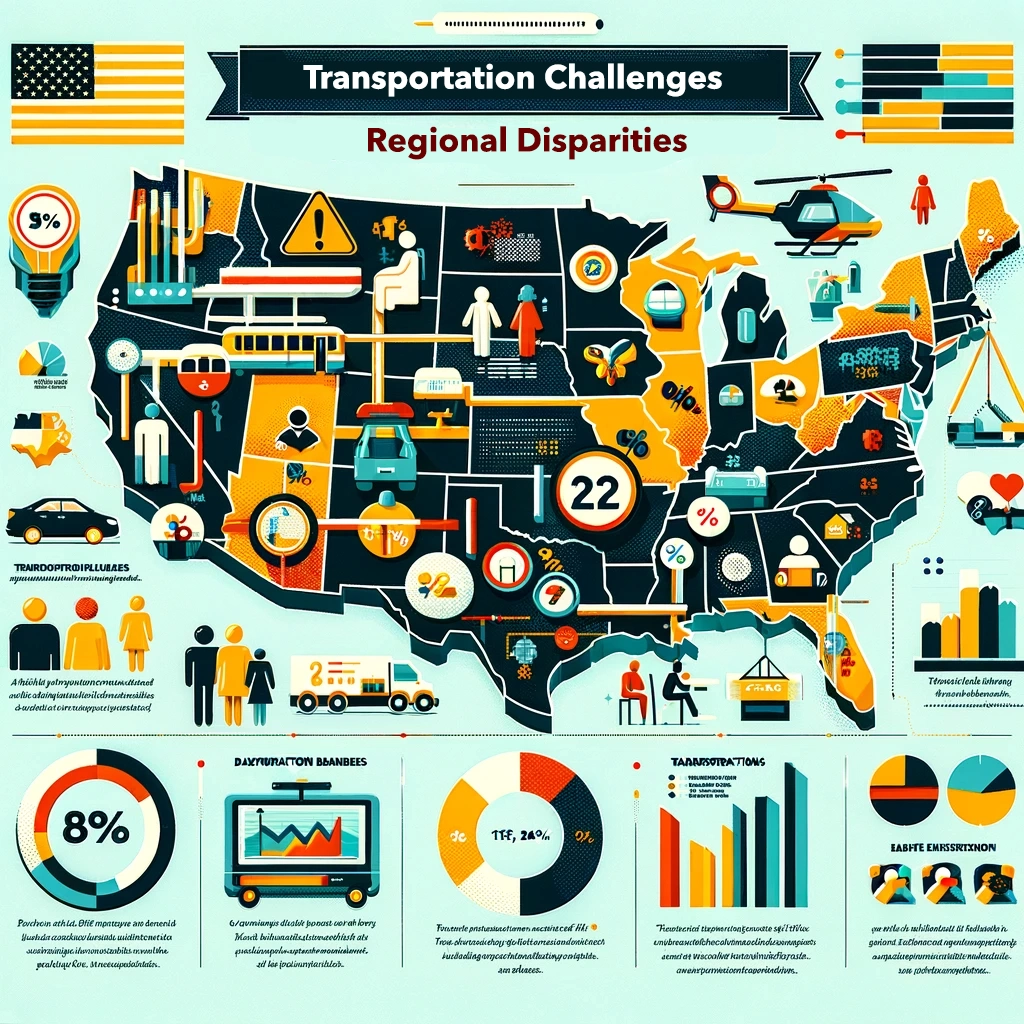In 2022, the United States faced a significant issue that often goes unnoticed yet profoundly impacts the daily lives of many: lack of reliable transportation. This article, brought to you by the Cross County Cardiology education team, delves into this pressing issue, exploring the key findings from the 2022 National Health Interview Survey and shedding light on the demographic and geographic disparities in transportation access.
Understanding the Scope: The National Health Interview Survey The National Health Interview Survey, a comprehensive data source, revealed that 5.7% of adults in the U.S. lacked reliable transportation for daily living in the past 12 months. This statistic unveils a critical aspect of social inequality and its impact on daily life, healthcare access, and overall well-being.
Gender Disparities in Transportation Access Interestingly, the survey indicated that women (6.1%) experienced more transportation difficulties compared to men (5.3%). This disparity highlights a gender-based gap in access to transportation, potentially affecting women's ability to participate in the workforce, access healthcare services, and engage in community activities.
Age-Related Transportation Trends Age also played a role in transportation access. Younger adults, particularly those ages 18–34, reported higher rates of transportation issues (7.0%), which gradually decreased with age, dropping to 4.5% among adults ages 65 and older. This trend suggests a shifting dynamic in transportation needs and accessibility across different life stages.
Racial and Income Disparities The survey further revealed significant racial disparities. American Indian and Alaska Native adults were more likely to face transportation challenges (17.1%) compared to other racial groups. Additionally, transportation issues decreased with increasing family income and education levels, underscoring the intersectionality of economic status, education, and access to basic needs.
Geographical Differences Geographically, the West North Central region of the U.S. had a higher percentage of adults lacking reliable transportation (7.5%), compared with the national average. This regional variation points to the need for targeted policy interventions and infrastructure improvements in specific areas.
The Bigger Picture: Impact on Healthcare and Employment Lack of transportation is not just an inconvenience; it directly impacts individuals' ability to access healthcare, secure employment, and engage in community life. This challenge becomes even more pronounced among populations already facing socio economic, racial, and geographic disparities. Inadequate transportation access can lead to missed medical appointments, employment challenges, and social isolation, exacerbating health disparities and hindering economic mobility.













